Who is the best Japan football player of all time?
With the continuous development of Japanese football, clubs, and national teams have become an inseparable part of the emotions of fans around the world. Outstanding players have raised the profile of this country with their talent, dedication, and unwavering passion. Japanese players are always a constant source of inspiration for the young generation and a symbol of the sustainable development of football in this country. So who is the best Japan football player of all time? Join Kingsoccertips to explore the journey of heroes on the field and their undeniable contribution to the prosperity of Japanese football!
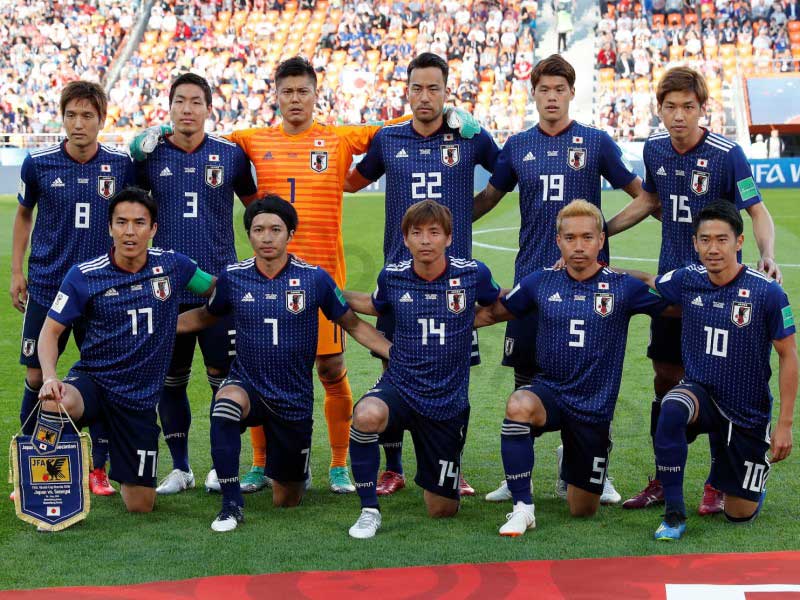
List of best Japan football player today
1. Takumi Minamino
Takumi Minamino is the best Japan football player, known for his ability to play as an attacking midfielder or winger, currently playing for Ligue 1 Club Monaco and is part of the Japan national team. Minamino’s journey began at League Division 1 club Cerezo Osaka in 2012. Since then, he has been on a journey full of challenges and successes.
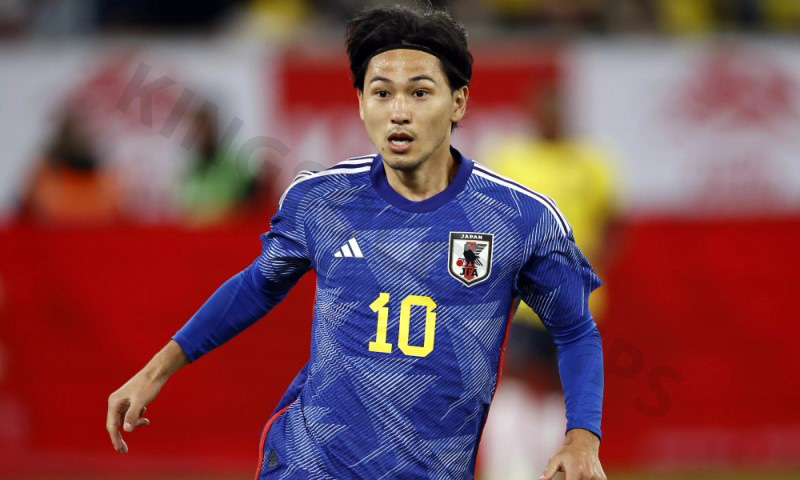
In 2014, Minamino moved to Austrian club Red Bull Salzburg, where he shone and made his mark throughout four seasons. His effectiveness on the field attracted the attention of many top teams, and on 1 January 2020, he joined Liverpool, an important turning point in his career. Minamino’s performances have solidified his reputation as one of the best Japan football players in recent years.
Minamino has also contributed to the success of the Japanese national team. He made his senior international debut for the team in 2015 and played a key role in helping Japan reach the 2019 AFC Asian Cup finals. Minamino’s versatility and creativity not only created opportunities to score goals for himself but also highlighted the organization and coordination of his teammates’ play.
2. Yuki Soma
Yuki Soma is a football talent from Japan, he plays as a striker for Nagoya Grampus and the Japanese national team. During his career, Yuki had the opportunity to play for two big teams, Nagoya Grampus and Kashima Antlers, where he was on loan.
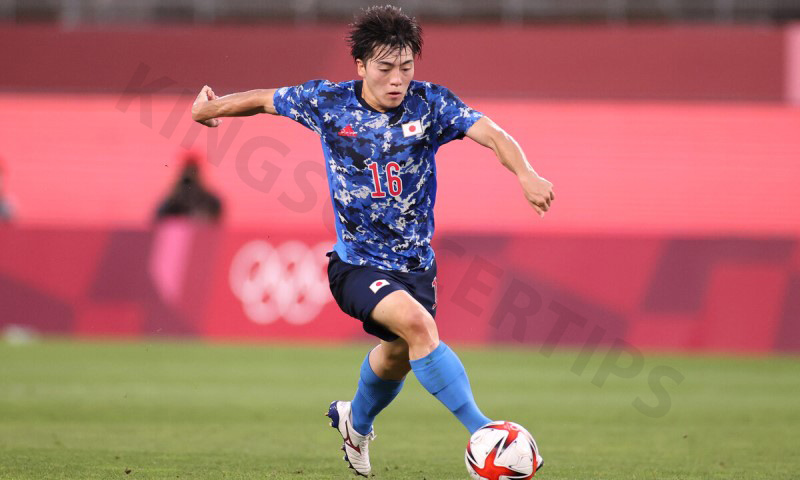
With his dedication and talent, Yuki Soma has scored a total of 7 goals in 61 appearances for the clubs he has represented. His creativity and scoring ability have created important opportunities and contributed to the team’s success.
With these significant contributions, Yuki Soma truly deserves to be recorded in Japanese football history and to have a place on the list of his country’s best players. His efforts and patience not only have made him stand out but have also glorified Japanese football on the international stage.
Smart bets start with data. Explore our latest Japan soccer prediction now.
3. Maya Yoshida
Maya Yoshida is one of Japan’s most famous soccer players, playing as a center-back for the LA Galaxy club and captain of the Japanese national team. With a diverse and successful career, Maya has left his mark in the hearts of football fans around the world.
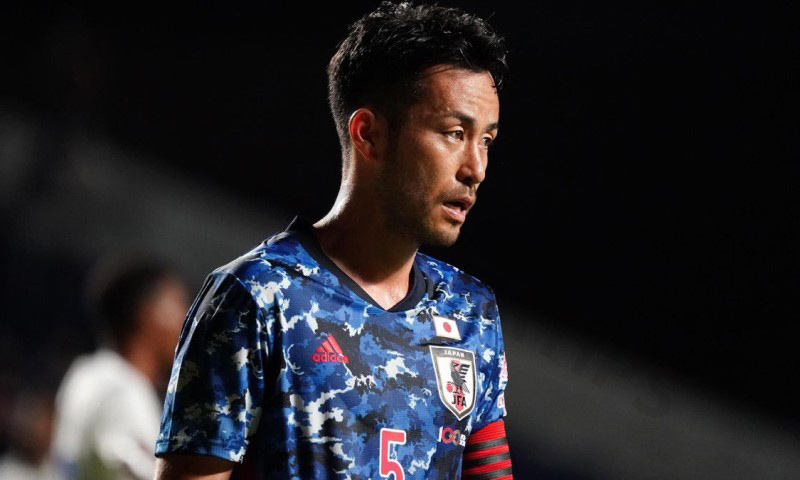
Having spent a career playing in many countries and clubs, from Nagoya Grampus, VVV-Venlo, Southampton, Sampdoria, and Schalke 04, Maya has accumulated considerable experience. With 484 appearances and 31 goals scored in his career, he has been an integral part of every team he played for.
Maya’s stability and leadership skills are demonstrated not only through his role as captain but also through the way he performs on the field. With his fighting spirit and strong team spirit, he has been an inspiration for many young Japanese players and an icon in the hearts of fans. With these significant contributions, Maya Yoshida truly deserves a place as the best Japan football player in history. His commitment and talent have brought pride and glory to national football.
4. Junichi Inamoto
Inamoto was one of the first Japanese players to venture into the European football market. After joining Arsenal, he had difficulty finding a regular position in the squad. However, a move to Fulham in 2002 was a turning point for the midfielder’s career. Inamoto was impressive, scoring against big opponents such as Manchester United before a foot injury ended his time at Fulham.
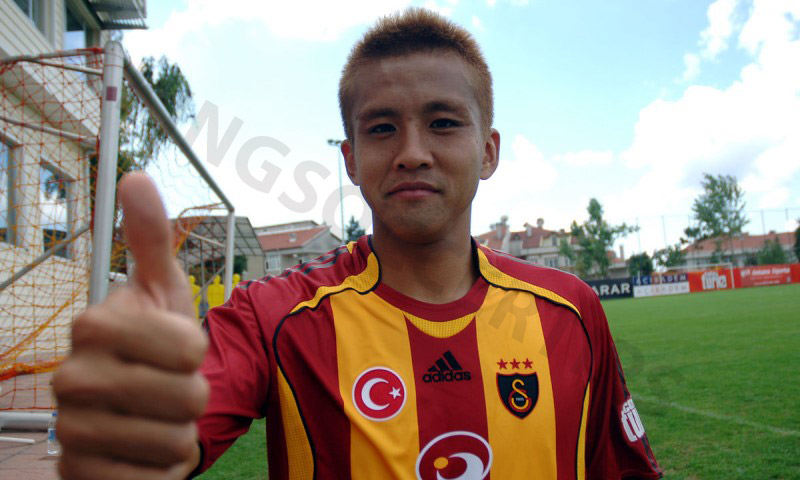
The years that followed at West Bromwich Albion and Cardiff City were not what Inamoto had expected. Although he tried his best, he was unable to reproduce the excellent performance he had shown at Fulham. After a short time playing in Europe, Inamoto decided to return to his hometown in 2010.
Although he did not achieve great success in Europe, Inamoto is still considered one of the symbols of Japanese football. His perseverance and effort opened the door for future Japanese players, and his inclusion among the best in the country’s football history is a well-deserved honor.
5. Honda Keisuke
Japan had to wait until 2010 to experience the joy of a World Cup victory in a match when Keisuke Honda scored the decisive goal in the game against Cameroon in Bloemfontein. This marks a huge step forward for Japanese football and is a testament to the tireless efforts of the players and fans.
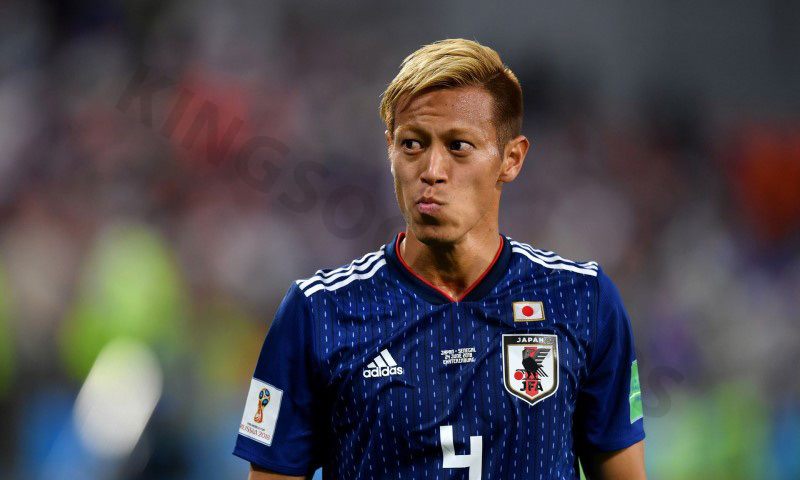
At the club level, Honda showed his versatility by playing in the Netherlands, Russia, and even joining AC Milan – one of the oldest and greatest clubs in Serie A. His performance in top European tournaments has contributed to increasing the prestige of Japanese players in the international arena.
Currently, Honda has turned to a coaching career and takes on the role of head coach of the Cambodian national team. His perseverance, talent, and passion have brought him much success as both a player and a coach, and he truly deserves to be on the list of the best Japan football players in history.
6. Yurahito Endo
In contrast to many of his teammates on this list, Yasuhito Endo never intended to leave his hometown to try his hand at foreign tournaments. After starting his career with Yokohama Flugels and Kyoto Purple Sanga, the 34-year-old has considered Gamba Osaka his second home since 2001. Since joining Gamba, Endo has been named to the First Team 10 times, a typical achievement in the J-League. His consistency and performance have helped Gamba Osaka achieve much success both domestically and internationally.
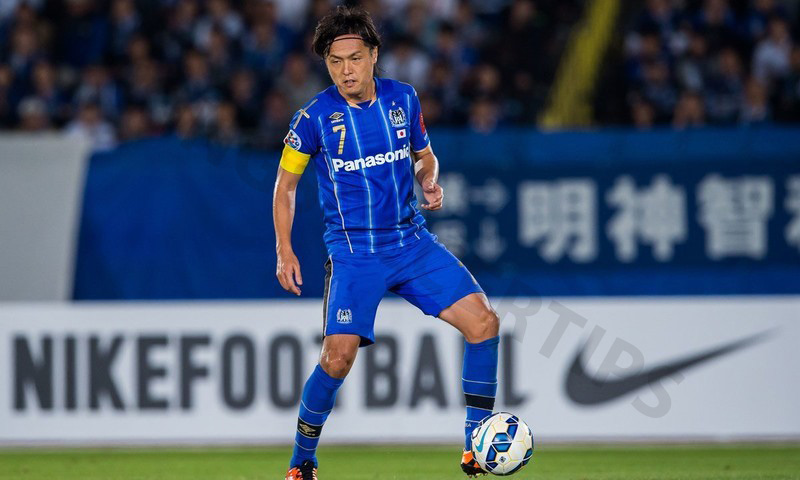
Endo also distinguished himself with the Japanese national team, becoming the player with the most appearances in the team’s history. He played an important role in winning two Asian Cup championships in 2004 and 2007. His goal in the match against Denmark in the 2010 World Cup finals captivated many football fans.
With his consistency, talent, and loyalty to national football, Yasuhito Endo truly deserves to be on the list of the best players in Japanese football history.
7. Shinji Kagawa
Thanks to his impressive performance with Cerezo Osaka, Shinji Kagawa was signed by Borussia Dortmund in 2010 for only £300,000. It was a small investment compared to what he brought to the German team, making that price one of the most astonishing transfers.
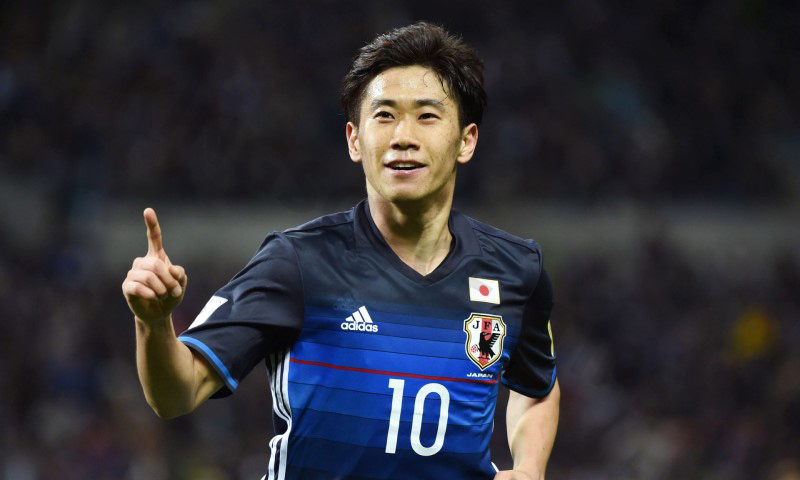
Kagawa not only contributed greatly to helping Dortmund win the Bundesliga twice in a row in the two seasons he was with the club, but he also left an unforgettable mark in important matches. In his final match before moving to Manchester United in 2012, he scored and assisted another, helping Dortmund defeat arch-rivals Bayern Munich in the DFB-Pokal.
Despite being left out of the 2010 World Cup squad, Kagawa came back strongly the following year and played an important part in winning the Asian Cup for Japan. Just 12 months later, he was named Asia’s Best International Player. With such impressive contributions and achievements, Shinji Kagawa truly deserves to be the best Japan football player in history.
8. Hidetoshi Nakata
Hidetoshi Nakata is one of the greatest players in Japanese football history. He left an unforgettable mark on his career, especially at the 1998 World Cup, when he scored 5 goals, nearly half of the national team’s total. This contributed significantly to Japan reaching the World Cup finals for the first time.
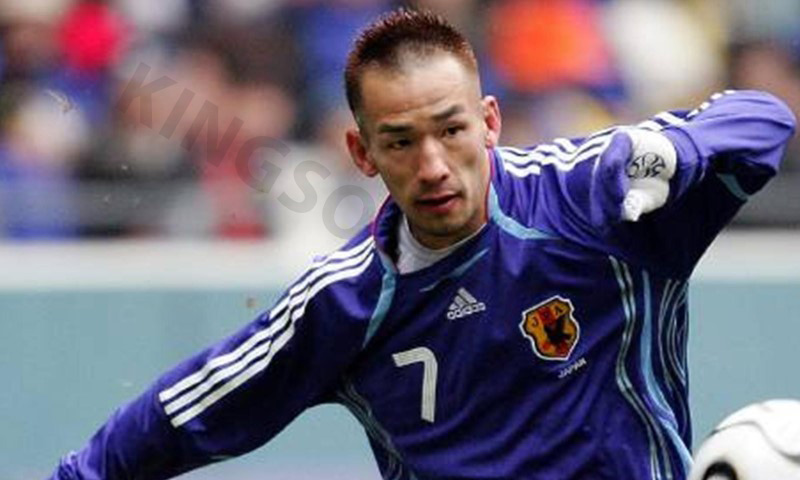
Nakata was not only nominated for the Ballon d’Or in 1998, but he also received two other nominations during his career. He was also nominated four times for the FIFA World Player of the Year award. This proves his influence and talent in world football.
In addition, the fact that Nakata was named in Pele’s list of the 100 best players of the 20th century is another testament to his excellence. With such remarkable achievements and titles, there is no denying that Hidetoshi Nakata deserves to be on the list of the best players in Japanese football history.
9. Kazuyoshi Miura
Kazuyoshi Miura, known by the nickname “King Kazu”, is a legend of Japanese football. He is not only an excellent player, but also the owner of one of the most impressive records in global football. As the oldest player to score in a professional soccer league, Miura has proven his strength and perseverance over the years.
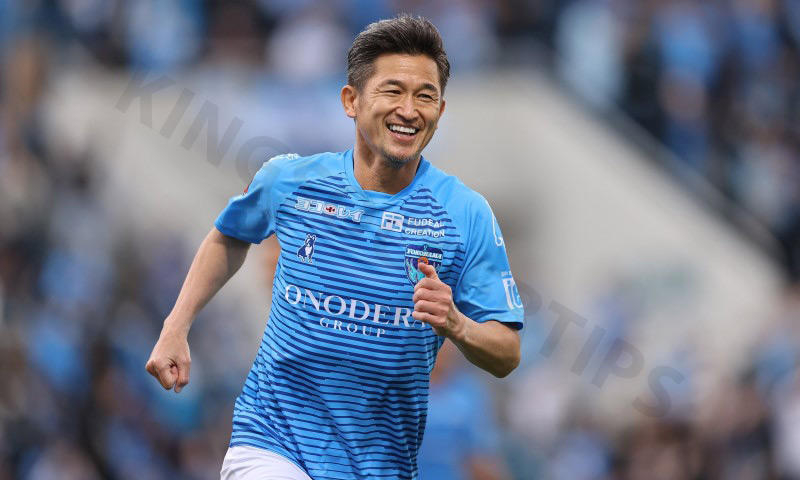
During his career, Miura also made significant contributions to the Japanese national team. With 55 goals in 89 matches, he has contributed significantly to the team’s success over many years. Miura’s enthusiasm, talent, and commitment have made him one of the icons of Japanese football.
With his outstanding contributions and achievements, there is no denying that Kazuyoshi Miura deserves to be the best Japan football player in history.
10. Kunishige Kamamoto
Kunishige Kamamoto is one of Japan’s most famous football players, with a strong association with Yanmar Diesel throughout his career. As a central striker, Kamamoto made history with more than 250 goals during his 17 years with the club.
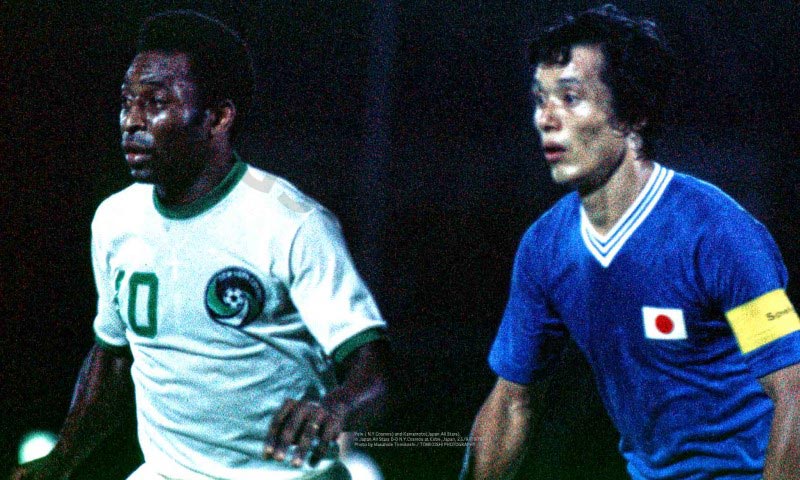
Kamamoto’s consistency and incredible scoring ability not only brought victories to Yanmar Diesel but also contributed to establishing his name in Japanese football. His prowess and patience on the field generated respect and admiration from fans and opponents alike. With his great contribution to Japanese clubs and football, Kunishige Kamamoto is truly one of the legends of this sport in the Land of the Rising Sun.
Conclusion
Above are the top 10 best Japan football player today. These names are not only the best players in Japanese football history but also symbols of people who bring honor and pride to their country. Their careers are a wonderful journey, marked by records, achievements, and undeniable contributions to the development of Japanese football on the world map. From the first days until today, they have become great icons not only in the hearts of football fans but also in the hearts of the entire nation!
